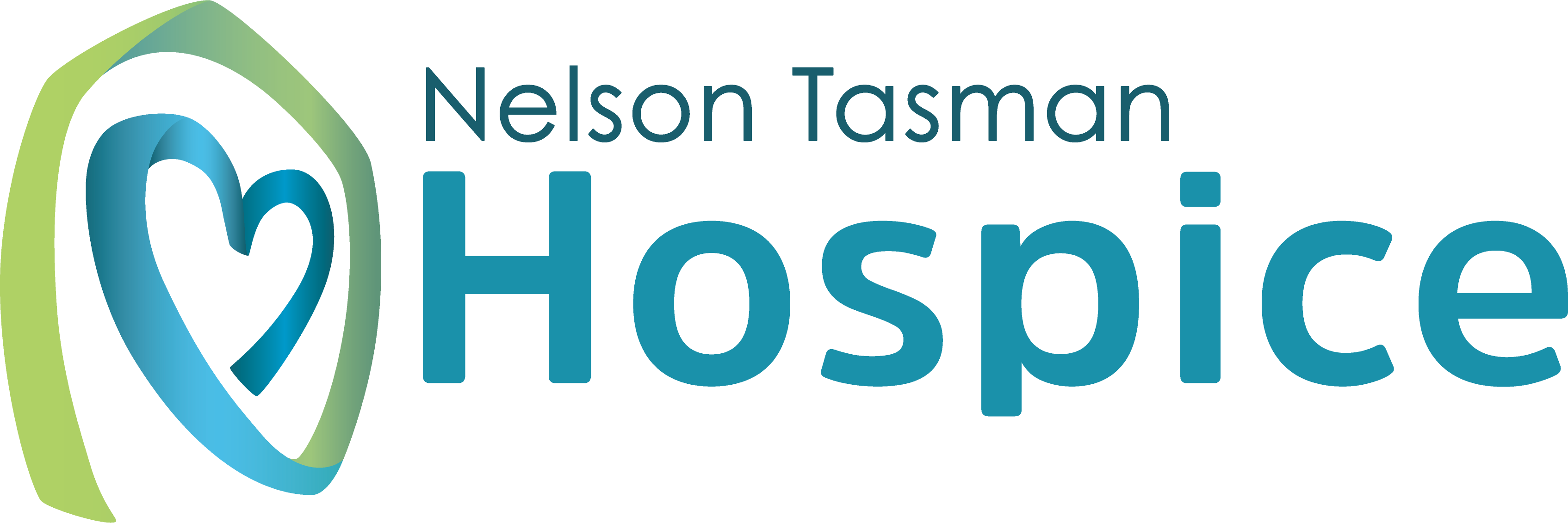Education
The education team offers diverse learning opportunities for health professionals, community health workers, carers, and groups, focusing on supporting primary generalist providers of palliative care.
We aim to ensure quality palliative care is accessible across the Nelson Tasman region by promoting evidence-based knowledge and skills. Our supportive environment includes certified Hospice NZ programmes for nationwide consistency in palliative care education.
Education Programme
An overview of the palliative care education offered and information on how to register.
Please note that our courses are available for registration 6- 8 weeks in advance.
For enquiries:
Email Nelson Tasman Region Hospice Education
Phone: 03 546 3950
Online Learning
A range of courses and online learning resources
Hospice New Zealand offers a webinar-based education opportunity, designed for healthcare professionals with an interest in palliative care.
Hospice New Zealand is working in partnership with My Mobile Health Hub to deliver presentations via webinar on the first Thursday of every month 7.30 to 8.30am. starting from February through to December and free of charge. To access the webinar via Hospice New Zealand website click this link and open the flyer to find the advertised session. You can access previous lectures here.
The Palliative Care lecture series can easily be accessed by individuals via a smartphone, tablet or computer connected to the internet.
You will need to register for the webinar. Simply click through the link and answer the short questionnaire, and you’ll be registered.
Following registration, you will receive an email confirming your registration and link to join the session. Certificates will be sent electronically by Mobile Health Hub to each individual who has registered and completed the feedback form. Attending the lecture is as simple as attending a zoom meeting.
Foreword
Palliative care has come a long way from the beginnings of the modern hospice movement in the 1960s and is now widely understood as an essential part of care for the whole person during life-limiting illness and at end-of-life.
Increasingly we are aware of the importance of being able to provide palliative care when and where it is needed and this often means involving palliative care earlier in the course of illness and not just in hospital or hospice, but at home and in residential care.
Alongside these developments, dementia has become a leading cause of death in many nations, something which is still relatively new to our experience, but which can be expected to increase.
As a result, the interaction of palliative care with the end-of-life needs of a person with dementia has never been more important or prevalent and yet this is not widely addressed in literature and clinical support.
As the authors of The Palliative Care Handbook (ninth edition) point out, too often people with dementia miss out on palliative care referrals and treatments that could make such a difference for them in their final days. Which is why this new edition is so vital. Not only have the highly regarded clinical and pharmacological guidelines been fully updated, extensive notes and advice have been included for the first time specifically addressing the end-of-life needs of people with dementia.
To accomplish this, original author, Prof Rod MacLeod and new author, Dr Stephen Macfarlane, have used their extensive expertise and experience to add many important
insights and guidelines for palliative care in the context of dementia.
There is no doubt that this new edition of The Palliative Care Handbook will continue to support excellence in palliative care around the world and now also support a growing awareness of the palliative needs of people with dementia.
A/Prof Colm Cunningham – Director of the Dementia Centre, HammondCare
Mary Schumacher – Chief Executive, Hospice New Zealand
The 9th Edition of The Palliative Care Handbook has been reviewed by Hospice New Zealand and we are pleased to advise that The Palliative Care Handbook New Zealand – First Edition will be available for download shortly. For updates, please continue to visit www.hospice.org.nz.
The Fundamentals of Palliative Care is a series of learning packages designed for any health care worker – registered and non-registered staff – who are caring for people with a palliative care need.
It provides the learner with a broad overview of how to provide palliative care to people in their last days of life.
The programme is delivered via a blended model of learning, consisting of 5 online modules which include reflection exercises and 3 workshops.
The online modules consist of:
Essence of Palliative Care – This is a foundation module and is a pre-requisite to enrolling in further modules in the programme. It covers palliative care concepts and the culture of care.
The palliative care approach – 1 module covering communication, ethics, and spirituality
Managing pain and long-term illness – 2 modules covering pain, other symptoms, and pharmacology. Chronic illness and dementia
Care and support at the end of life – 1 module covering last days of life, grief, loss, and caring for ourselves.
These courses can be completed independently, with a certificate of completion available for each. To participate in a workshop, the online learning relevant to that workshop will need to be completed first. To complete the full Fundamentals of Palliative Care programme, participants are required to complete all on-line courses and attend all three workshops.
Contact the Education Team at Nelson Tasman Hospice to find out when the next workshop will be held
This 45 minute course is for all clinical staff who provide care and support for those who are thought to be in the last days of life regardless of care setting.
There are two parts to this course which require access to an external link managed by Nelson Tasman Hospice Education team :
(1) The information and background reading
(2) A 10 question quiz
By the end of this module you should be able to:
-
- understand the importance of recognising when someone is entering the last days of life
- understand the background to the Te Ara Whakapiri The toolkit (2017)
- identify signs of dying and outline the treatment management in the last days of life
- be aware of the holistic needs of patients and family/whānau experiencing the last days of life
- competently use Te Ara Whakapiri as a tool and resource for care in the last days of life regardless of your care setting.
Advance care planning (ACP) is the process of thinking about, talking about and planning for future health care and end-of-life care. Advance care planning is really important for people and their families at all times during the health care journey.
Advance Care Planning (ACP) helps you, the important people in your life, and your health care team understand your priorities in situations when you are unable to speak for yourself.
ACP is especially helpful when thinking about end-of-life care. It is best achieved with open and meaningful conversations so that you can express what care you would, or would not, like to receive. This allows everyone to know and respect your wishes.
An advance care plan is not limited to medical care, it can also cover:
- What makes life precious and meaningful to you, such as where you would like to be and who you would like to be with you as your condition changes.
- The ways you would like those caring for you to look after your spiritual and emotional needs.
- What sort of funeral you would like and whether you want to be buried or cremated.
- Whether you wanted to donate your organs.
- Where your important papers are and whether you have an Enduring Power of Attorney or Advance Directive in place.
There are a number of online and face-to-face training resources for clinicians to increase their knowledge about advance care planning, explore their biases, understand the legal framework for medical decision-making, improve their clinical communication skills and to effectively document conversations and plans.
The Level 1 advance care planning (four modules) is a great place for clinicians to learn more
The Serious Illness Conversation Guide is a tool to help clinicians have quality conversations with seriously ill patients and their whānau.
Shared goals of care are when clinicians, patients and whānau explore patients’ values, the care and treatment options available and agree the goal of care for the current admission and if the patient deteriorates.
Health service providers need to take a systems-level approach to shared goals of care to ensure these discussions occur with patients and whānau and are in line with their Te Tiriti o Waitangi responsibilities.
Click here for more information about Shared Goals of Care
The overall aim of this course is to support healthcare professionals to develop skills and practices that achieve goals of care that are shared by patients and whānau.
Dame Cicely Saunders Education Suite
A purpose built education venue in the heart of Nelson
The education suite at Nelson Tasman Hospice is available for hire.
To enquire about booking, or to view the venue, please get in touch with the team.
Duration: The suite can be booked for anytime from 1 hour up to 1 – 2 days, seven days a week.
Capacity: Seats up to 65 people in a theatre style seating arrangement.
Facilities: 85″ LG television screen with HDMI cabling; Logitech video conference equipment; Laptop plug-ins welcome and free Wi-Fi. Access to toilets and an outside area available.
Kitchenette facilities: Hot water urn; sink; dishwashing liquid; water cooler; fridge; mugs and teaspoons for up to 30 people. Please note: Users will need to provide their own tea, coffee, sugar, milk, and tea towel. Outside caterers will need to supply all cutlery and crockery. No alcohol to be supplied or consumed without prior approval. No smoking or vaping permitted as we are smoke free.
Parking: There is limited parking space available in the Hospice car park. During work hours, users are encouraged to park along Suffolk Road to ensure availability for patient families and staff.

Palliative Care Education Calendar
The Better Endings Project
Nelson Tasman Hospice 331 Suffolk Road, Nelson, New ZealandWhat is the Better Endings Project The Better Endings Project is about educating the community on the basics of caring for people who are dying. This workshop is for the general public…

